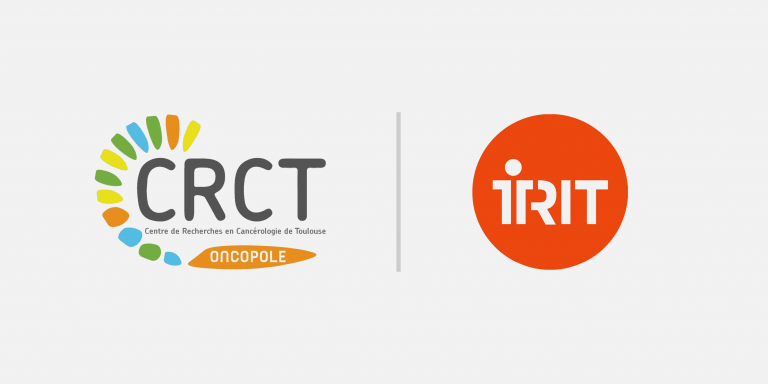
At the beginning of April, the Toulouse Cancer Research Center (CRCT) and the Toulouse Institute of Computer Science Research (IRIT) announced the creation of the first digital cancer research laboratory. Named “Michel Laudet” in honor of the famous Toulouse computer scientist who founded the CIT (Toulouse Computer Center) in 1963 and became the first president of IRIA (now INRIA) in 1967, this laboratory, the result of a long collaboration, is integrated within the CRCT.
The CRCT
Installed on the site of the Toulouse Oncopole since 2014, the CRCT, under the supervision of Inserm, CNRS and Paul Sabatier University, aims to stimulate research in the fight against cancer and leads an integrated approach between research, care and teaching, in a transversal and multidisciplinary logic.
It is directed by Gilles Favre, Professor of Biochemistry and Medical Biology at the University of Toulouse, Scientific Director of the Toulouse-Oncopole University Cancer Institute and Director of the Medical Oncology Biology Laboratory. The close collaboration with the clinicians of the IUCT-Oncopole, which associates the Claudius Regaud Institute and teams from the Toulouse University Hospital, allows the transfer of research results to clinical applications and the development of innovative approaches in the field of diagnosis and treatment. The Center’s strategy is based on its 4 research axes:
– Oncogenic signaling, DNA damage and genetic instability;
– RNA and cancer;
– Tumor microenvironment and metabolism;
– Onco-immunology.
The CRCT continues its actions to consolidate its strong axes, launch new initiatives, recruit new talents, develop its partnership strategy and improve its visibility and attractiveness.
THE IRIT
Created in 1990, IRIT is a UMR (Mixed Research Unit) between CNRS, Paul Sabatier University and the Polytechnic Institute of Toulouse. Its research, both theoretical and applied, in Data and Computational Science, finds its application in everyday life, notably in the following fields
- Health, autonomy, well-being;
- Smart city;
- Aeronautics, space, transportation;
- Digital social media and information diffusion;
- e-education;
- Cybersecurity, security of goods and people.
The laboratory in digital oncology
Research in the health field generates a mass of data that can only be processed in their entirety digitally. IRIT’s expertise in artificial intelligence, mathematics, simulation, logic modeling of systems and artificial life will enable CRCT and IUCT-O researchers to accelerate their research and thus rapidly propose innovative solutions for a better management of cancer patients.
This laboratory is an example of a successful collaboration between computer sciences and health sciences for the benefit of cancer research and patients. Moreover, it allows the CRCT researchers to better understand computer science and AI tools and the IRIT researchers to better understand the essential questions in cancer research. This laboratory has started its activity which is growing rapidly and is setting up many ambitious projects in the fight against cancer.
The Michel Laudet laboratory counts:
- 10 researchers from IRIT;
- 12 researchers from CRCT and IUCT;
- 2 PhDs and 3 post-docs;
- An average of 5 interns, notably from the Grandes Ecoles (Polytechnique, INSA Toulouse and École Centrale Paris, École des Mines);
- A dozen ongoing or emerging projects.
Promising beginnings
Ibrahim Didi, an intern from École Polytechnique, received an internship award on December 2, 2021, for his work around the use of AI techniques for prognosis prediction and treatment decision support for acute myeloid leukemia at the Michel Laudet laboratory. Using a database of 5,000 patients, collected in collaboration between the university hospital centers of Toulouse and Bordeaux, the goal of the internship was to predict the survival at a given time of patients with acute myeloid leukemia for the two most commonly used treatments (intensive chemotherapy and hypomethylating agents), as well as to predict the most appropriate treatment for elderly patients.
Based on decision tree classification and deep learning techniques, it was able to achieve 70% accuracy on prognosis at median survival, and over 90% accuracy on predicting the treatment given by the practitioner.
Translated from Création du premier laboratoire de recherche en cancérologie numérique : « Michel Laudet »









